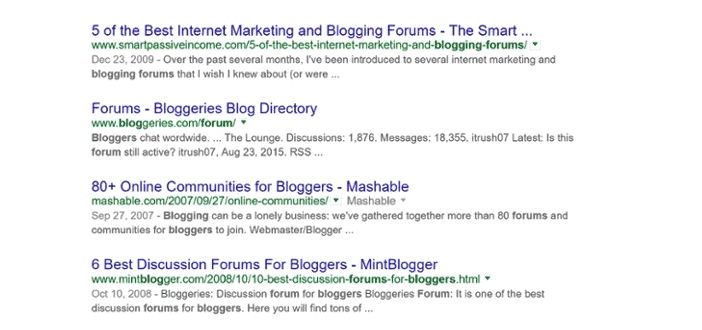The term “online educator” might conjure images of a distinguished professor. Or maybe a bestselling author, or a highly-paid speaker. More than likely it makes you think of someone who has studied and trained for years, even decades. When it comes to the types of course creators, some of them fit that image, but most don’t. I’ve met online educators of all shapes and sizes, all genders and ages, all nationalities, and levels of expertise. In fact, you may have a profitable online course lurking inside you.
And this possibility isn’t something to take lightly. As I said in my book, Teach and Grow Rich, creating online courses gives many people the opportunity to empower their students to know more. And it can help them do better, and be more capable of facing challenges in their lives.
After years of teaching thousands of students to become online course builders, I’ve observed that they fall into four categories. Read on and see if you recognize yourself in one of these types:
Types of course creators: The Insider
The insider type of online course creator is passionate and enthusiastic about a hobby or interest. Even though they might not consider themselves experts, they know quite a bit about their hobby. If you find friends and family turn to you for advice on a certain topic, you might be the insider.
And while you’re happy enough to keep pursuing it for its own sake, it would be nice to be able to derive income from it as well. After all, other people are making a living doing what they love. Why shouldn’t you?
Turning your hobby into an online course with Teachable may be one way to do it.
Your next step
First, recognize that you know enough to teach others. And know that that’s enough for you to become an online course creator. Appreciating and internalizing this is your first step. Because many people let feelings of inadequacy stop them from pursuing becoming an online course creator.
Your next step is to find the best entry point in your area of interest and validate your course idea. One way to do this is by conducting social listening, or “eavesdropping” on the various relevant conversations online. The specific platforms where you’ll find these conversations will differ depending on your topic of interest, but here are some to consider:
1. Blogs
Do a quick Google search for “[Your Topic] Blog.” You should be able to find sites that speak directly to your topic, and if not, you can expand your search to closely related topics. Pay attention to the comments. Look at where readers engage with the content and with each other. Discussions form in those comment threads, and they often leave insightful clues as to what the audience is connecting to most strongly.

2. Forums and communities
You’ll also find lots of great conversations happening in forums. Forums are designed to start and continue discussions about issues that matter to their members. They tend to be very tightly focused on specific topical areas, which makes them an absolute gold mine for clear, descriptive “problem language,” or what people say—in their own words—about their own situation, the problems that they face, and the challenges that they can’t seem to get around. Use Boardreader to find forum discussions around your topic.
3. Amazon and Udemy reviews
Search for books or courses about your topic area, and read the reviews. Reviewers will often provide a lot of detail about why the product either was or wasn’t valuable to them. Take note of how users describe the problems that caused them to purchase the book or course and their explanation of how it either exceeded or fell short of their expectations. Both positive and negative reviews are useful information about what people want—and need.

4. Social media
Look for questions, personal stories, opinions, and responses to content on social media. Remember, eavesdropping on online conversations is all about paying attention to what your target audience is saying about what they want, where they have problems, and what they need.
The Journeyman
Next up in our exploration of the types of course creators is the Journeyman. You wouldn’t call yourself an expert, but you know more than the average person does about several things. You’re living proof that what you know works. In fact, you’ve been sharing your experience and knowledge with others, and they’ve been getting results as well. Maybe this has given you a nice side income.
Why couldn’t you turn it into a full income? If there’s enough demand for your knowledge, and you can teach more people through an online course, that’s certainly a possibility.
Your next step
Find the minimum viable version of what you could teach in a pilot course and get paid for. The key is to be hyper-narrow and specific—which is the exact opposite of what most people do when they set out to create a course. Usually, people want to teach everything they know about their topic area, and they end up with a massive, six-month-long course that nobody buys.
Piloting is the opposite approach. You can find your minimum viable outcome in one of two ways:
- Ask yourself, “What’s the best outcome I can deliver to my learners within a four- to six-week period?”
- Imagine that you’re on a flight from New York to Chicago, and you have the length of the flight, which is just over two hours long, to teach the person sitting next to you as much as you can to transform their lives. What would you teach in those two hours that will create the biggest impact in their lives?
Whatever you would cover in a limited time, while still delivering a meaningful result, is exactly what your pilot course should focus on.
The Expert
Next up? The Expert. The third on our list of types of course creators. You’re an expert if you have the expertise, training, and experience, and you’re getting paid for it, but your income doesn’t match the depth of your knowledge. You know more than the vast majority of people on your subject matter, but haven’t monetized your expertise in a significant way yet.
In all likelihood, it’s because you haven’t found an effective way to derive meaningful income from your passion. Or it could be that you just need to make a higher-value proposition to your audience, so you can get paid more for your knowledge. Either way, becoming an online course creator will help you.
Your next step
You already have plenty of experience in your field, but sometimes knowing too much can be a problem. It can blind you to what your market wants and needs, and most importantly, what they want to pay for. So your next step is to research your market. Find what problems and challenges potential customers are experiencing and what they’re willing to pay for.
Here are five ways for you to do that:
1. Eavesdrop on conversations
Pay attention to the discourse that’s taking place in public online places like blog posts, shopping and review sites, discussion forums, and the like. (Read the details about this approach in The Insider’s next steps above.)

2. Conduct information interviews
Reach out to people in your target audience and interview them about their problems. You can also conduct informational interviews with industry experts who understand what the market is struggling with.
3. Engage in helping conversations
Participate in discussions and communications with people online around the topic you want to pilot. These might take place through email, on Facebook, LinkedIn groups, or other social media, or in forums that you’re a part of— anywhere people reach out and ask you for insight and advice.
4. Run live coaching calls
Get on 15-minute coaching calls to support your audience. And learn what questions and issues come up most frequently for them. This takes a bit more elbow grease and time, but it can yield great insights and strengthen your relationship with your audience in the process.
5. Create simple surveys
If you already have a large audience, then send them a survey about their most pressing problems, questions, or challenges around your topic. Remember, this is a simple survey with at most three questions. You can easily create free surveys using Google Forms or Survey Monkey.

Whichever method or combination of methods you choose to use, collect your findings in a spreadsheet so you can analyze them later.
The Professional
Last in our list of types of course creators is the Professional. You’re an expert and a notable one at that. And that’s the reason you’ve been making a good income from your expertise. Maybe that’s been either as a highly-paid consultant, speaker, or something similar. Few people know what you do, and that’s why people have been paying you to share your knowledge with them.
But there’s a catch: Your income is limited by the number of billable hours you put in. So to scale your income, you have to work more hours which isn’t always possible. Or maybe you want to work fewer hours while maintaining or even increasing your income. All that is completely doable by becoming an online course creator. You already have the expertise and reputation. And you already know that there’s enough demand for your knowledge that people would pay to benefit from it.
Your next steps
Plan to package what you’ve already been doing into a course. Test the waters with a mini course, instead of rushing headlong into a full course. A pilot course will allow you to validate the assumptions you have about your prospective students. Do they really want to know what you plan to teach? And it will help you get familiar with teaching online.
To create a pilot course, follow these steps:
1. Determine the minimum viable outcome of your mini course
Ask yourself what outcome or result you can realistically promise your learners within four to six weeks, the typical length of a pilot course. Complete this sentence: “At the end of four weeks, my students will….” (More on this in The Journeyman’s next steps explained earlier.)
2. Choose what type of mini course you want to teach and at what price
Decide how much interaction you want to provide your students. Low-touch course types include an email course, large-group coaching, and live boot camps for a large group of people. High-touch course types would be things like one-on-one coaching and small-group training. This will also help determine how you will deliver your course, whether by email, PDFs, video conferencing, teleconferencing, or a combination of these.
Establish a price for your pilot course and how you will get paid for it online. Choose a date for when you want to begin the pilot, and set up the infrastructure you need to deliver the course.
3. Plan the curriculum for your course
Make a one-page curriculum for your pilot course. Don’t make it too detailed, because you want the flexibility of course-correcting based on feedback from your learners.
With your minimum viable outcome in mind, make a list of the big concepts or steps your students have to learn. These will be your main lessons. Under each lesson, make a bullet list of topics you want to cover. And your curriculum is done!
4. Sell your course
Prime your network by floating the idea of your pilot course, offer it to those who’ve shown interest and enroll them in your course.

5. Deliver the course with the attitude of a scientist
Deliver your online course, paying close attention to feedback from your students. Use what you learn to craft your full online course.
Time to decide of the types of course creators you are
I’m really excited about online courses, because they’re a way to build wealth by creating real value and positive impact in the world. And with technology becoming more affordable and easier to use, online courses are also one of the most democratic ways to build a sustainable business.
The question is, do you have this untapped potential and opportunity latent in you?
If you want to find out, we have a quiz to help you determine which of the four faces of online course creators most closely fits you. Click here to take the quiz.
Join more than 150,000 creators who use Teachable to make a real impact and earn a real income.



.png)





